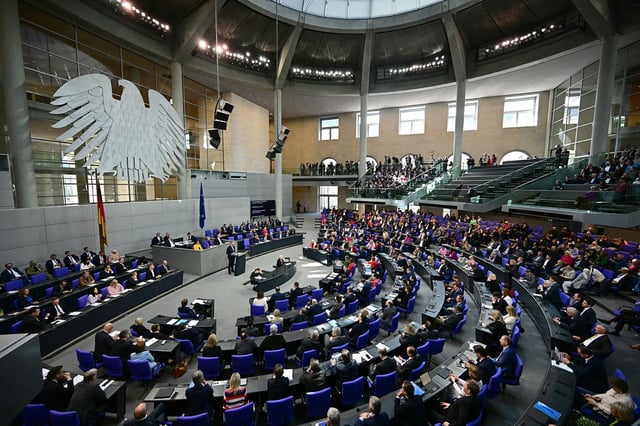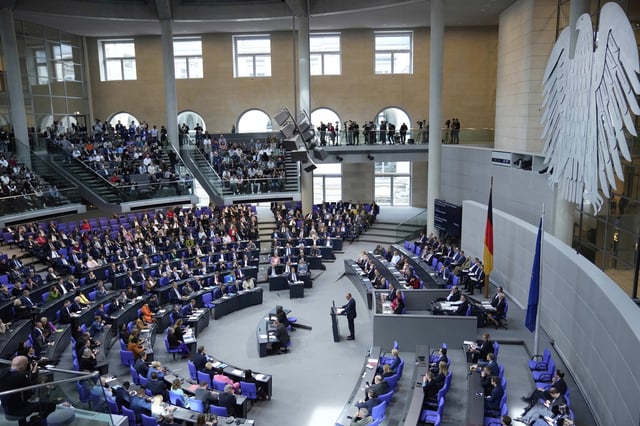Overview
- The Bundestag approved the fiscal package with 513 votes, surpassing the two-thirds majority required to amend the constitution.
- The reforms include a €500 billion infrastructure fund, with €100 billion allocated to climate-related projects over 12 years.
- Defense spending exceeding 1% of GDP will now be exempt from the constitutional debt brake, marking a significant policy shift.
- The package also includes €5 billion in military aid for Ukraine in 2025, reflecting heightened geopolitical concerns over Russian aggression.
- The legislation now moves to the Bundesrat for final approval, where it will also require a two-thirds majority to pass.


